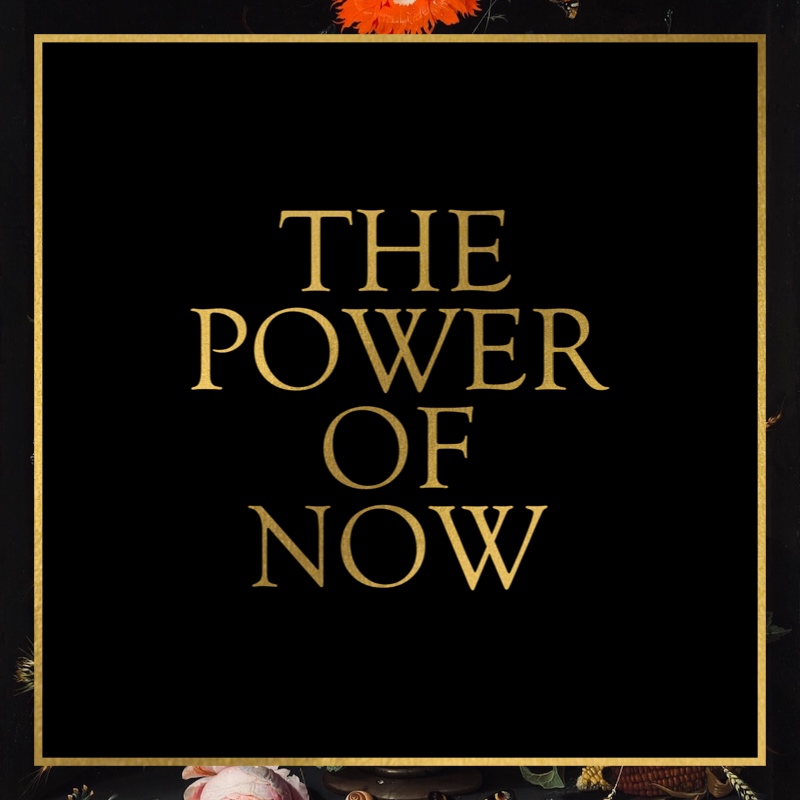The power of now is a concept that explores the ability to transcend the pain of the past and the fear of the future.
The extremely popular book called The Power of Now by Eckhart Tolle is essentially a take on the concept of Advaita Vedānta, which translates as ‘non-duality’ and is a school of Indian, Hindu Philosophy.
Like mindfulness, these ideas explore the relationship to presence through the lens of the ‘stuff you carry’ (shame, trauma, the story of your life).
Neuroscientists have become interested in the concept of staying present. Specifically, lots of studies have been done on mindfulness based meditation.
Such studies show that mindfulness practises can changes the physical structure of the brain.

Presence is good for your brain (and keeps it ‘young’)
A scientist called Sara Lazar did a well-known study after her yoga teacher made claims about the benefits of yoga and meditation, which she experienced for herself but did not understand from a scientific perspective.
She used MRI technology to look for scientific proof of the benefits. You can read her study here and watch a TED talk from her on the topic here.
She observed that the frontal cortex, the part of the brain associated with memories and that tends to become thinner out as we age, was different in those who meditated. Those of an older age (50+) who meditated had the same amount of grey matter in their frontal cortex as younger participants (age 25) in the study.
Along with other Harvard neuroscientists, Sara did another study where they observed people who had never meditated going through an eight-week mindfulness training programme. The results were that brain changes came; that mindfulness activated parts of the brain related to memory, empathy and emotional regulation, increasing brain volume in the hippocampus and temporoparietal junction. It also decreased activity in amygdala, which is a part of our brain hugely involved in triggering a stress response
Not a new concept
These are not the only studies. The interest in what being present, and practicing things like breath and meditation, from scientists, grows and grows.
Whilst the science is relatively new on this subject, it is a concept that is deeply embedded in many religious and spiritual practices, especially in south Asian countries.
Mindfulness is a practice that forms a part of many religious and secular traditions—most commonly attributed to Buddhism and to Hinduism. It is a concept that could be applied to the rituals and practises of most, if not all, religious and spiritual belief systems from Catholic prayer to Sufi mysticism.
All of it comes back to the power of the present moment: a universal practice of human consciousness.
The power of the mat to land you in the moment
When you come to a Kundalini Global class, the mat, the power of the mat, is that it is a space, a vehicle through which, you can allow your teacher to guide you toward becoming more present to the moment.
If we can allow our mat to become a safe enough space, we can allow ourselves to be guided toward the power of the moment.
This is why Kundalini Global teachers talk about the importance of relaxing the stress system… to do so will help to facilitate that safety. Enough safety to land in the present moment and experience the power of now.
No matter your religious or spiritual belief system, presence is a wonderful thing. For your brain. For you body. For feeling differently about yourself and your life.
If you want to use that presence to foster a relationship to an external Divine, or simply allow it to unfold, holding an awareness of the science that backs it up… it matters not to us. What matters is the privilege of you allowing us the opportunity to guide you to now.
If you would like to deepen your understanding of these concepts, why not train with us? This coming Friday, at 4pm, we have a live call and Q&A about our Level One teacher trainings.
Find out more about that here.
Or simply enter your email address now to access the link on Friday:

